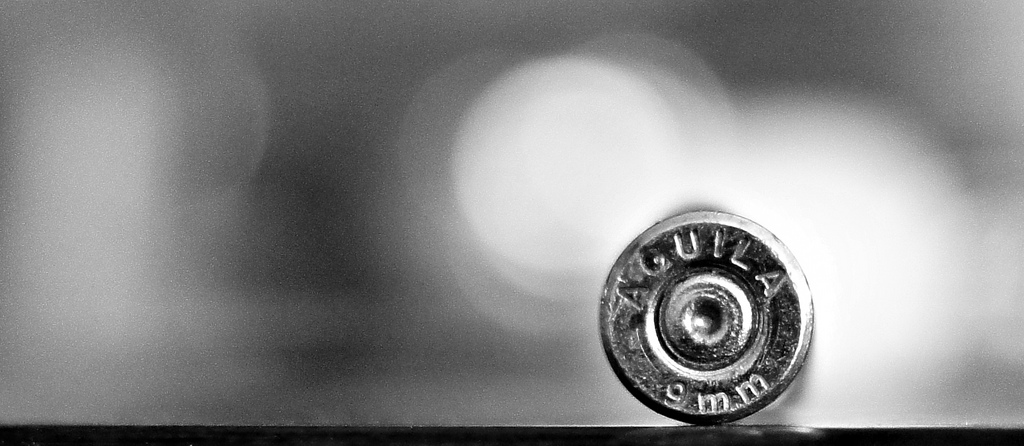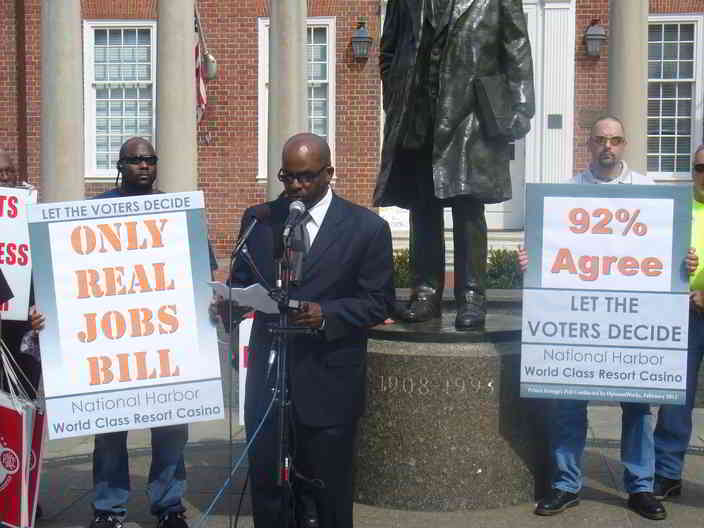By Brooks DuBose
Capital News Service
With about a month until the 2019 legislature convenes on Jan. 9, the new Democratic House of Delegates majority leader is looking to continue the progress made last session on gun violence prevention by banning 3D and ghost guns in the state.
House Majority Leader Kathleen Dumais, D-Montgomery, said she will be introducing a bill banning the possession of 3D-printed guns — plastic guns capable of shooting live ammunition and made in a 3D printer — and ghost guns — nearly complete and without serial numbers — in Maryland.
Federal law already prohibits the creation of untraceable guns.
Dumais said her bill would provide legislative support to the legal actions already taken by Attorney General Brian Frosh.
In July, Frosh joined a lawsuit filed by Washington state’s attorney general to block the release of instructions for 3D guns to the public by Defense Distributed Inc., an organization that sought to distribute the digital schematics. A final ruling on the case is expected to be made this month.
“Obviously, the state can’t regulate the internet, but we can certainly indicate what is allowable in Maryland or what you can possess in Maryland,” Dumais said of the plastic guns. “They might be legal otherwise, but you’re not going to be able to create them or have them in Maryland.”
Specifics on how the ban will be implemented are not yet clear, but a draft of the bill would be available in the coming weeks, she said.
“Absurd” say 2A advocates
Mark Pennak, the president of Maryland Shall Issue, a Second Amendment advocacy group, called the potential legislation “absurd” and would represent a ban on “the possession of knowledge.”
“No one has ever used it in a crime,” Pennak said. “It would cost far more to 3D-print (a gun) than to acquire a gun from on the street. It’s just hysteria and nothing more.”
Most 3D printers, devices that create three-dimensional objects from a computer-generated model, cost hundreds of dollars, while the more complex models can reach several thousand. This makes acquiring a 3D gun cost-prohibitive, Pennak said, and the guns are designed to shoot one low-caliber round at a time, making it an ineffective way to carry out a crime.
But newly appointed vice chair of the Senate Judicial Proceedings Committee Sen. Will Smith, D-Montgomery, said that 3D gun technology is rapidly evolving, which should spur the General Assembly to address the issue.
“In the last five years, we’ve gone from being able to essentially print figurines, to operable firearms,” Smith said. “We’re trying to keep ahead of the curve but this is still something that has proliferated so fast we’re still behind. … The last thing we want is for the next gun tragedy to be the result of a 3D-printed gun.”
Ghost guns
Of more concern, are what are known as “ghost guns,” said Cassandra Crifasi, assistant professor of health policy and deputy director of the Center for Gun Policy and Research at Johns Hopkins University.
Ghost guns are incomplete kits of metal weapons available for purchase online. The nearly complete guns, as Crifasi called them, do not require serial numbers because they are not technically complete guns but may be made functional with some parts purchased separately.
“It’s an actual metal gun that’s much more like what you would buy from a federally licensed firearms dealer. Far more effective and functional than something that’s plastic,” Crifasi said. “I would be more concerned about people being able to purchase nearly complete firearms, finishing it either themselves or using a gunsmith to finish them up and then you have something that is equivalent to what you can get in the store with no serial number.”
Three gun bills passed last session
Last session, the Democrat-controlled General Assembly passed three bills to tighten gun laws in the wake of school shootings in Parkland, Fla., and Great Mills, Md.. Calls to address gun violence were renewed after a shooting in June at the Capital Gazette newsroom in Annapolis.
Two of the bills aimed to restrict firearm access for individuals who have been previously convicted of domestic violence, or have shown “red flags,” like being a danger to themselves or others. The red flag law passed largely along party lines, with Republicans opposed, while the domestic violence bill received nearly unanimous support in both chambers.
The third bill, banning bump stocks — a device that makes guns fire more rapidly — also passed along party lines. Bump stocks are most notably known for being used in a mass shooting at a music festival in Las Vegas in October 2017.
To the dismay of Second Amendment advocates like Pennak, Republican Gov. Larry Hogan signed all three bills. In response, the National Rifle Association downgraded Hogan from an “A” grade to a “C-” and declined to endorse his reelection bid for governor after doing so four years ago.
Bans can have reverse effect
Crifasi applauded the General Assembly for focusing on removing guns from at-risk individuals but said imposing bans on weapons and devices like 3D guns and bump stocks can sometimes have the reverse effect. Bans can draw people’s interest to something they were previously unaware of, she said, equating it to cities warning people about a dangerously strong batch of drugs.
“Rather than people taking it as a warning and avoiding the risk, it could have the unintended consequence of drawing people in,” Crifasi said.







And here, ladies and gentlemen, is another example of a legislator with a “solution” in hand, just looking for a “problem”. Small wonder Marylanders are leaving that state in droves.
Gun nuts
anti-US_Constitution nut
It’s already been said, but…Federal law does NOT prohibit you from making unserialzed guns for personal use. You cannot make them with intent to sell. More fake news.
“Federal law already prohibits the creation of untraceable guns”
Can you fact check that law please?
Hey DuBose! It is not against Federal law to manufacture a firearm without a serial number for personal use. It is only against the law to do so with the intent to sell or otherwise distribute. Do some basic research you clown!
Also tell your moronic friend Crifasi that so called ghost guns are 1- not simply something you add parts to, you must do some precision machining first and 2- no, you cannot take it to a gunsmith for completion since the end user of such a gun must complete the work themselves or it is a violation of Federal law. Once again do some basic research you posturing clowns.
PS- no matter if one buys a serialized receiver or an 80% receiver and all the parts necessary to make a gun it is more expensive than buying a complete gun off the rack. Again you and the clowns of the General Asylum are all hype, little fact and zero basic research.